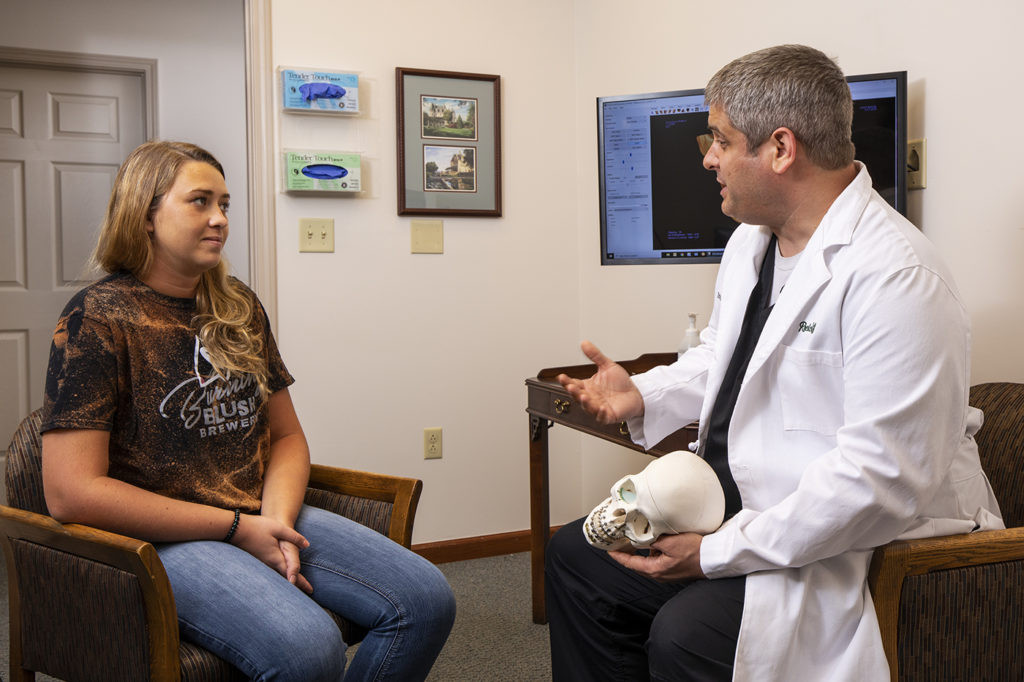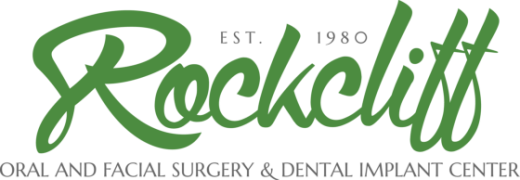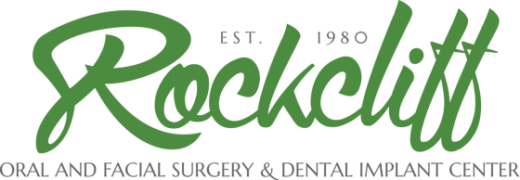What kind of abnormal lesions occur in the jaws?
Jaw Cyst
A cyst is an abnormal collection of fluid surrounded by a sac of tissue. Most cysts grow from cells that were originally involved in the development of your teeth. These cells should normally be dormant, but if stimulated can grow to form a cyst. As fluid collects within the cyst it slowly expands – weakening or destroying the surrounding jaw bone.
Jaw Tumor
A tumor is an abnormal growth of tissue within the jaw bone. It may originate from cells involved in the formation of your teeth. Others may form from cells that normally form bone, cartilage, or other tissues. Most jaw tumors are benign, but can be destructive if not properly treated.
Jaw Cancer
Cancer is an abnormal growth that spreads from the jaw bone to the neighboring tissues. It usually occurs when cancer from the gums or oral mucosa spreads into the jaw bone. Other types can come from bone, cartilage, or surrounding tissues. Cancer is usually treated using a multidisciplinary team approach.
What kind of problems can occur?
Abnormal jaw masses are often slow growing and painless. They result in gradual destruction of the bone and expansion and weakening of your jaw. Over time the mass can displace or loosen your teeth, resulting in changes to your bite. Other jaw masses are fast growing and can result in pain and swelling. The nerves in your jaw can be compressed resulting in numbness to your lips, gums, or teeth.
How are cysts and tumors of the jaws treated?
The initial consultation is a chance for our providers to get to know you and your concerns, perform a physical exam, and obtain any necessary x-rays. Identification of the abnormal tissue is important to guide surgical treatment. Initially a biopsy will be done and once the lesion has been identified, our surgeons will then recommend the best treatment to remove the complete lesion with the lowest chance of reoccurrence.
Treatment will ultimately depend on what type of cyst or tumor that you have. Some lesions are fast growing and aggressive and require bigger surgery to make sure the abnormal cells don’t grow back. Other lesions are noninvasive and can be simply removed.
Different surgical treatments may include:
Excision (Enucleation)
Excision involves complete removal of the cyst or tumor, sometimes with removal of some of the surrounding bone. This may be done in our office or at Mission Hospital. Often the damaged jaw bone can be rebuilt during the same procedure.
Resection (Partial mandibulectomy)
Resection involves complete removal of the cyst or tumor along with a portion of your jaw. Some of the surrounding teeth may also be removed. This is typically done with aggressive lesions to ensure that the abnormal tissues are completely removed. This procedure usually takes place at Mission Hospital under general anesthesia.
The jaw may initially need to be stabilized with titanium plates and screws. Reconstruction of your jaw may occur during the same procedure or as a second surgery.
Many patients are able to go home after their procedure. Depending on the type of surgery you have, you will likely be able to go back to work or school after 1-2 weeks. While you are healing you will need to avoid any strenuous physical activity.
Depending on your procedure, you may be limited to a very soft, no-chew diet. This consists of foods such as grits, yogurt, eggs, soups, and smoothies. Once cleared by your surgeon, you will eventually transition to foods that require slight chewing such as pancakes, well cooked pasta, or fish.






